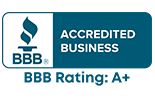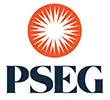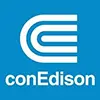An antimicrobial agent for mold is a specialized compound designed to stop mold at the biological level, not just clean its surface. Mold is a living organism composed of microscopic filaments (hyphae) that feed on organic material and moisture. If its internal structure isn’t disrupted, it can quickly regrow even after cleaning. Antimicrobial agents solve this by interrupting essential life processes that allow mold to survive and reproduce.
These treatments are classified as fungistatic (inhibit growth) or fungicidal (destroy mold entirely). When applied correctly, they act as a disinfectant and antifungal barrier, keeping residential and commercial spaces safe long after remediation. Many are EPA-registered biocides, formulated to eliminate spores, prevent biofilm formation, and protect treated surfaces.
Understanding how antimicrobial agents work is essential for lasting prevention, especially when professional-grade solutions are required.
We Use Antimicrobial Agents to Help You Protect What Matters Most! Your Health, Your Home, Your Peace of Mind.

The Science Behind Mold Growth and How Antimicrobial Agents Help Stop It
Mold thrives where moisture, warmth, and organic materials like drywall or wood combine. Spores land, germinate, and form threadlike roots called hyphae that spread into a feeding network. Antimicrobial agents disrupt this process by penetrating surfaces, destroying hyphae, and preventing new spores from developing. Like cutting off a plant’s roots, they stop mold regrowth at its biological source, forming the foundation of modern prevention and remediation.
When to Use an Antimicrobial Agent for Mold
Knowing when to apply an antimicrobial agent for mold determines how effective your remediation or prevention efforts will be. These treatments are most valuable when used during high-risk situations where moisture, organic materials, and poor ventilation combine to create ideal conditions for mold growth.
By using antimicrobial agents at the right time, you not only eliminate existing contamination but also create a long-term protective barrier that prevents future outbreaks.
- Post-Remediation Treatment: Post-remediation treatment ensures that any remaining spores embedded in surfaces are neutralized. Post-remediation treatment helps prevent rebound mold growth after visible colonies have been removed.
- After Water Damage or Flooding: After water damage or flooding, applying an antimicrobial agent stops microbial activity early. After water damage or flooding, the treatment prevents mold establishment during the drying process.
- Basement and Attic Defense: Basement and attic defense create a long-term barrier in high-humidity zones, preventing condensation-related mold growth in hidden or enclosed areas.
- HVAC System Treatment: HVAC system treatment targets ducts and coils that harbor airborne spores. HVAC system treatment prevents spores from recirculating and maintains healthy indoor air quality.
- Wood and Drywall Protection: Wood and drywall protection uses deep-penetrating antimicrobial sealants. Wood and drywall protection strengthens porous materials against moisture absorption and long-term mold infestation.
- New Construction or Renovation: New construction or renovation treatments protect framing, insulation, and drywall before moisture exposure. New construction or renovation treatments provide proactive protection for long-term structural health.
Not Sure About Antimicrobial Agents? Contact Us for a Free Assessment! Our Opinion is Always Free!
Zavza Seal’s Mold-Related Services for New York Properties
Zavza Seal delivers expert moisture management and mold prevention solutions across Long Island, Queens, Brooklyn, Bronx, and Suffolk County. Our licensed team specializes in identifying, repairing, and protecting structures from the harmful effects of water, humidity, and contamination.
From basement waterproofing to full-scale mold remediation, every service is performed with precision, using EPA-approved products and industry-certified protocols to ensure lasting safety and performance.
- Mold Remediation: Mold remediation removes existing colonies, sanitizes affected materials, and applies EPA-certified biocides. Mold remediation ensures long-term protection, improved air quality, and compliance with New York safety standards.
- Crawl Space Encapsulation: Crawl space encapsulation creates a sealed, moisture-controlled environment. Crawl space encapsulation prevents mold growth, pest infestations, and humidity-related damage while increasing energy efficiency and structural stability.
- Basement Waterproofing: Basement waterproofing stops water intrusion from hydrostatic pressure and leaks. Basement waterproofing preserves your foundation, reduces humidity, and prevents future flooding or seepage events.
- Yard Drainage Systems: Yard drainage systems manage stormwater and surface runoff. Yard drainage systems protect landscapes, foundations, and basements by directing water safely away from your property.
- Air Purification Systems: Air purification systems filter allergens, mold spores, and toxins from indoor air. Air purification systems maintain cleaner breathing conditions, protect occupants, and support post-remediation air restoration.
- Dehumidification Systems: Dehumidification systems regulate humidity to prevent mold and structural decay. Dehumidification systems maintain optimal indoor air balance and preserve property value in humid environments.
- Water Damage Removal: Water damage removal extracts standing water and moisture from affected areas. Water damage removal prevents microbial growth, restores structural integrity, and minimizes long-term repair costs.
Protect Your Home With Licensed Waterproofing And Mold Experts. Request A Free Site Visit From Zavza Seal Today.

Mold Remediation and Foundation Crack Repair in Syosset, NY
A homeowner in Syosset, NY, contacted Zavza Seal after noticing musty odors and dark staining along the basement wall. Upon inspection, our team discovered that water seepage from a foundation crack had created the perfect environment for mold growth. The issue threatened not only the home’s air quality but also its structural integrity.
Problem:
Moisture intrusion through a settling crack allowed mold to spread behind drywall and insulation. The trapped humidity and poor ventilation accelerated fungal growth, posing health risks and potential wall deterioration.
Solution:
Zavza Seal technicians contained the affected area, removed contaminated materials, and treated all surfaces with an EPA-registered antimicrobial agent. The foundation crack was repaired using professional epoxy injection and sealed externally for long-term waterproofing and mold prevention.

For DIYer’s: Best Antimicrobial Spray for Mold
Finding the best antimicrobial spray for mold means balancing safety, surface compatibility, and kill-time effectiveness. Not all products are created equal. Some eliminate surface colonies, while others penetrate porous materials for lasting protection. Below are three top-rated mold sprays commonly used in residential and commercial environments.
RMR-141 Disinfectant Cleaner
According to EPA registration data, RMR-141 Disinfectant Cleaner demonstrates a 99.9% spore kill rate within 10 minutes on treated surfaces. RMR-141 uses quaternary ammonium compounds for rapid biocidal action. It kills mold, bacteria, and viruses on contact, often within minutes, making it one of the strongest over-the-counter biocides available. It’s effective on hard, non-porous surfaces but not recommended for delicate or unsealed materials due to potential discoloration.
Concrobium Mold Control
Concrobium is a non-toxic, residue-free spray that uses sodium carbonate to crush mold spores mechanically rather than chemically. It’s ideal for homes with children or pets because it leaves no VOCs or chemical fumes. However, it requires complete drying to achieve full effect and may not be strong enough for heavy infestations.
Benefect Botanical Disinfectant
Benefect is a hospital-grade disinfectant made from thymol, a plant-derived antimicrobial compound. It kills over 99.99% of bacteria and mold spores within 10 minutes and is EPA-registered for both residential and commercial use. Benefect is non-toxic and leaves a pleasant herbal scent but may require multiple applications for porous surfaces.
While these consumer-grade sprays work well for minor outbreaks, they cannot match the depth, safety certification, or longevity of professional-grade antimicrobial applications.
Professional Applications Are Safer, Stronger, and Longer Lasting. Ask Zavza Seal. Contact Us Now for a Free Assessment!
Not Sure if You Need an Antimicrobial Agent or Mold Application? Schedule Your Free Mold Testing Today with Zavza Seal
Even small colonies can signal a larger hidden problem behind walls or under floors. Untreated mold threatens not only air quality but also the long-term value of your property. Our specialists provide Zavza Seal mold testing to detect contamination before it spreads.
This free, no-obligation visit includes a detailed inspection, moisture analysis, and written estimate for safe, guaranteed remediation. Acting early protects your family’s health and ensures your structure stays clean, dry, and secure.
If you suspect a problem, don’t wait, schedule your free mold testing today and learn how an antimicrobial agent for mold can protect your home for years to come.
Frequently Asked Questions About Antimicrobial Agents for Mold
What Is an Antimicrobial Agent for Mold?
An antimicrobial agent for mold is a specialized compound that stops mold growth at the biological level by disrupting its life processes and cell structure.
How Does an Antimicrobial Agent Work?
An antimicrobial agent works by attacking mold’s cellular membranes, enzymes, or proteins, destroying its ability to reproduce and survive on treated surfaces.
When Should an Antimicrobial Agent Be Used?
An antimicrobial agent should be used after mold removal or as a preventive treatment in humid areas like basements, crawl spaces, and attics.
Are Antimicrobial Agents Safe for Homes?
EPA-registered antimicrobial agents are safe when applied correctly by professionals. They eliminate harmful microbes without releasing toxic fumes or residues indoors.
Can I Apply an Antimicrobial Agent Myself?
Homeowners can use over-the-counter antimicrobial sprays, but professional-grade treatments offer deeper penetration, longer-lasting results, and safer handling of affected materials.
What Is the Difference Between Fungistatic and Fungicidal Agents?
Fungistatic agents inhibit mold growth, while fungicidal agents destroy mold completely. The right type depends on the contamination level and surface material.
How Long Does an Antimicrobial Treatment Last?
Professional antimicrobial treatments can last months or even years, depending on environmental factors, moisture control, and ongoing property maintenance.
Do Antimicrobial Agents Prevent Mold From Coming Back?
Yes, antimicrobial agents prevent regrowth by leaving behind a biocidal barrier that stops spores from germinating and colonizing treated surfaces.
What Areas Benefit Most from Antimicrobial Treatments?
Basements, crawl spaces, bathrooms, and HVAC systems benefit most from antimicrobial treatments because they retain moisture and promote mold growth.
Why Choose Zavza Seal for Antimicrobial Applications?
Zavza Seal uses EPA-registered biocides, hospital-grade disinfectants, and certified remediation methods to ensure complete, long-term protection for your property and health.








